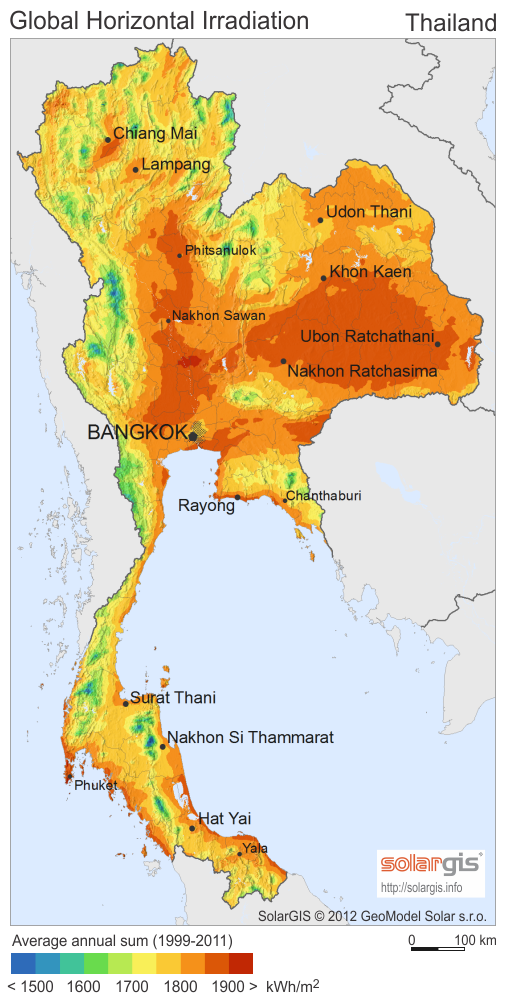Why are we doing this?
Because the solution to better air, cheaper energy prices and climate change is turning to:
Renewable energy
Explore these 10 facts and you will understand why Thailand must act now.
1. An endless & free ressource
Thailand is made for solar energy 
2. An untapped potential
Having so much sunlight available, solar energy is contributing to Thailands energy mix by:
3. A waste of Thai tax money
Fossil fuels are expensive - and to keep their prices low, they are subsidized with tax money!
4. Multiple benefits
Expanding solar energy is not only good for the environment 🌿 but can also result in significant economic growth, through job creation, technology advancements and cheap energy for everyone. 🌻
5. Geography
Thailand has lots of existing reservoirs 
6. The lack of an attractive net metering system
Have you ever wondered why there are hardly any solar cells on Thai rooftops? That's because feeding the produced electricity into the grid - displacing other electricity sellers - is made financially unattractive. This is stopping a widespread adoption of solar energy by citizens.
7. Rooftop solar has to expand
It is the best way to avoid land use conflicts - existing roofs can be turned into small powerplants without constructing anything new.
8. There is more than just solar power
There are other forms of renewable energy in Thailand that can be drastically expanded, improving the quality of life for everyone. Those would be waste to energy, bioenergy and wind power for example.
9. Playing Monopoly in real life
Thailand’s energy system is not adapting to these obvious signals since it’s one giant monopoly with huge financial interests from the fossil fuel industry. Gas power plants that have been built have to keep running - their displacement by cheap solar energy would cause the owners a financial loss.
10. The best time is now
Transitioning to renewable energy has never been more urgent and easy at the same time. Other countries have already advanced in this field, providing lots of knowledge & experience that Thailand can use to become a regional leader.
Here you can research this information for yourself:
Here is a solar-map showcasing how incredibly suitable Thailand is for solar energy: 
Read about Thailand’s expensive dependency on foreign fossil energy imports here:
https://www.power-technology.com/comment/renewables-key-thailand/
Read about the massive job-creating potential of renewables here:
Take a glimpse at how clean and smart energy solutions can look like in Thailand: 
The World’s Largest Hydro-Floating Solar Hybrid
Here’s whats wrong with net metering in Thailand, look at the low price at which people can sell their solar energy to the grid:
https://www.nationthailand.com/thailand/general/40029286
The World’s Largest Hydro-Floating Solar Hybrid
This is self-explaining: Any already existing surface that can be equipped with solar cells won’t take away other space, like farmable land.
As long as the market can be controlled by one big player, it’s up to him what will happen with Thailand’s energy situation. If cheaper forms of electricity generation are not allowed to enter the grid because of him, this slows down the entire energy transition and its benefits.
This problem exists since a long time already, here is an article from 2016:
https://www.nationthailand.com/business/30292007
“In addition to creating new jobs in manufacturing,
installation, operation and maintenance, establishing these renewable generation
capacities could position Thailand as a front-runner in the region. Early actions
could also act as a green-growth economic impetus post-Covid. An increased
share of indigenous renewable energy (RE) sources will reduce fossil fuel-import
dependency, mitigating geopolitical and supply shock risks like those encountered
in 2022. Thailand’s transition to a low-carbon energy system will reduce air
pollution in the energy sector, saving 27,000 lives over the next 30 years and
reducing the risk of premature death from stroke, ischemic heart disease and
lung cancer.”
Read the full report here.